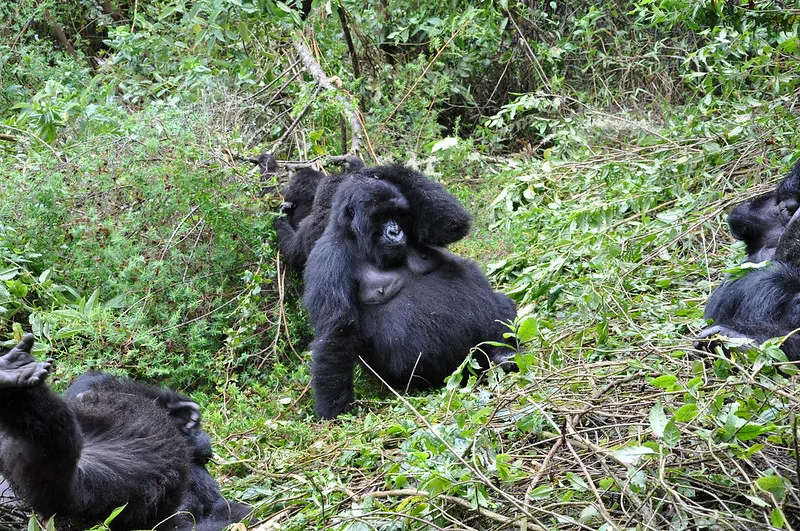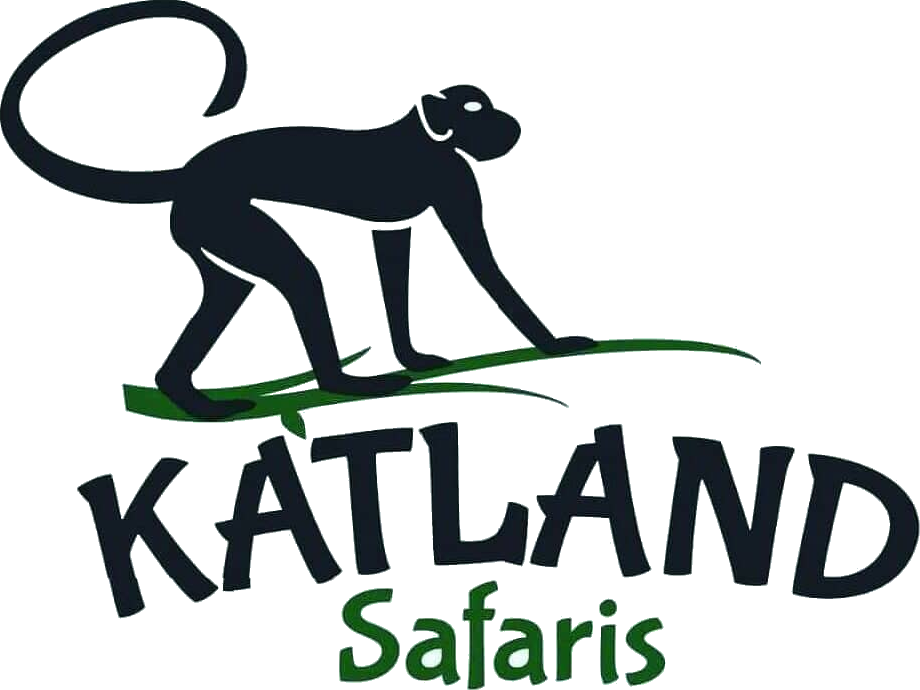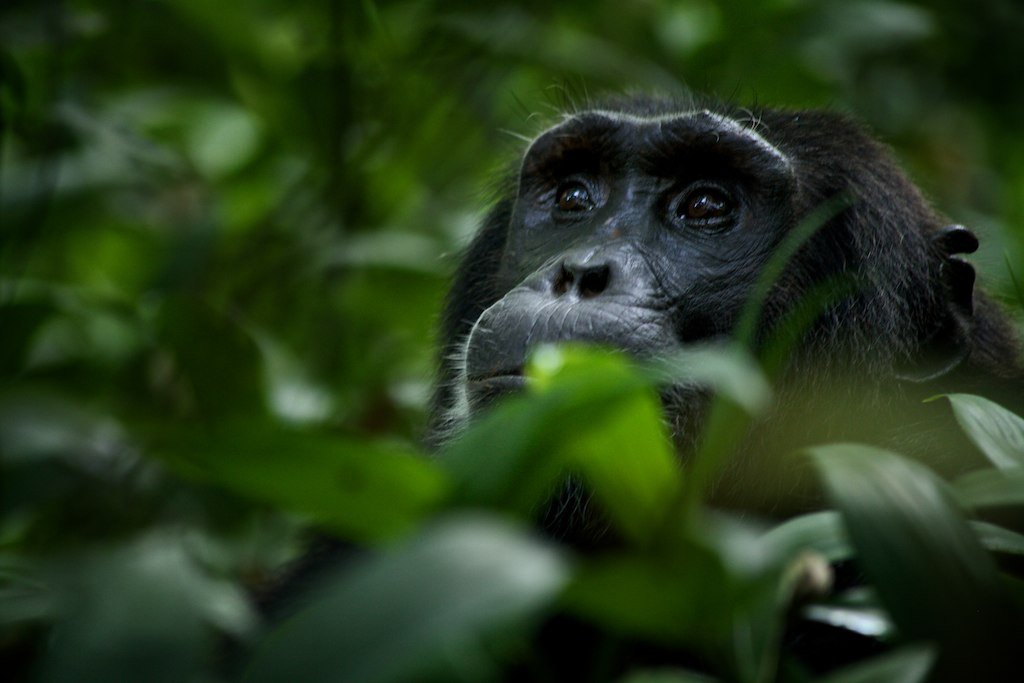Planning a Uganda Gorilla Safari During Covid-19.
COVID-19 Uganda Gorilla safari advice, challenges, and options. Uganda welcomes international tourists despite the travel sector’s severe plague to help recover. Organizing a Uganda gorilla safari during COVID-19 requires following certain standards operating procedures to keep you and the primates safe while providing the same authentic natural experiences that have made Africa famous.
Not amended is the golden rule for gorilla trekking: avoid sanctuaries while unwell. We know gorillas are sensitive to human diseases since they share 98% of human DNA, therefore visitors have always followed well-established procedures to keep the primates virus-free.
In addition, gorilla conservation organizations have tightened trekking standards with the government to prevent people from spreading viral diseases to gorilla populations.
If you desire a Uganda gorilla safari during the pandemic, obtain your complete COVID-19 vaccine. In addition to protecting you, immunizations help halt epidemics.
There is a delicate line between protecting mountain gorillas from evil and keeping travel open as gorilla tourists are the main reason the creatures thrive in their natural surroundings. The vulnerable species would be devastated if the Covid-19 virus found its natural environment, requiring almost 70 years to recover.
Tourism mostly funds conservation efforts, keeping local villages free from jungles and employed. We must keep gorilla trekking accessible and safeguard the valuable species.
To conserve these rainforest gems and keep gorilla tourism open, visitors must follow regulations. We have prepared statistics to assist you plan your Ugandan gorilla trekking journey after COVID-19. Investigate.
COVID-19 Uganda Gorilla Trekking Safari Planning
The Gorilla License
Gorilla permits are essential for Uganda safaris. With many gorilla families available for tourism, gorilla licenses are uncommon and restricted to eight people per day.
You should buy yours now and months in advance. Some plan trips two years ahead. This assures mountain gorilla sightings on your travel date.
Ugandan gorilla permits cost USD 800 for non-residents, USD 700 for citizens, and UGX 300 for East Africans. Travel was lowest during COVID-19, therefore Uganda Wildlife Authority cut foreign non-resident licenses to $400. Discount programs end June 31, 2021. Despite not knowing whether the promotion will last, we will update our blog.
UWA offices or approved Ugandan travel operators may arrange your gorilla permit. Book your gorilla permit at Katland during the COVID-19 pandemic. If your vacation plans change, Encounter may postpone your gorilla permit, which is tough for everyone.
Where gorilla trekking happens
Two southwest Ugandan national parks offer gorilla trekking. Bwindi Impenetrable National Park, the most famous, hides about half of mountain gorillas. Another is Virunga Mountains-based Mgahinga National Park, which borders Rwanda and DRC.
All Ugandan gorilla treks start at five trailheads: four in Bwindi and one in Mgahinga. Only one of the five trailheads is allowed with your gorilla permit.
Buhoma in the north of Bwindi has five gorilla families; Nkuringo in the south has three; Rushaha in the southwest has five; Ruhija in the east has three; and Mgahinga has one. Indicate which gorilla permit suits your terrain, accomodation, and access when booking.
Every trailhead has stringent COVID-19 operating procedures from UWA. You must meet all requirements before entering the jungle to observe mountain gorillas.
From modest camping to luxury bush lodges with rigorous operating standards to protect guests and advise them on Coronavirus prevention, all hiking trailheads provide accommodation alternatives. During your COVID-19 Uganda gorilla safari, everyone is concerned for your health and others.
COVID-19 Gorilla Trekking Policies
The first and most crucial gorilla protective measure is staying home while sick. Not only Coronavirus, but any sickness that can infect everyone. Gorillas share 98% of human DNA, so they easily get our diseases, undercutting conservation efforts. Uganda Wildlife Authority guides will not allow anybody into the gorilla habitat if they detect sickness.
Second, you must be COVID-10-negative and vaccinated before visiting the gorilla park. You’ll have overcome the largest impediment to see Uganda’s beautiful mountain gorillas with a valid NEGATIVE PCR COVID-19 TEST certificate provided within 150 hours.
Complete vaccination doesn’t matter. Ensure your Uganda gorilla safari has a valid COVID-19 test certificate. The only Uganda primates you may see are immigration authorities.
48 hours before picking you up at the airport, your gorilla safari driver-guide will have tested negative for the virus. They must always wear a facemask and have a valid document.
The Ministry of Transport and UTB will license your gorilla safari vehicle. It will be cleaned often with few people to avoid congestion and maintain physical separation.
Wear a facemask in public, get your temperature taken at every entrance point, and wash your hands and change your shoes as required.
Viewing mountain gorillas requires an extra facemask at the trailhead. We’ll disinfect your shoes and give you a hand sanitizer spray.
To enjoy the forest air while hiking in the jungle, remove your facemask before meeting the primates. It may take 30 minutes to 4 hours to follow the mountain gorilla family under the forest canopy, so be in good condition to walk on hard terrain in the deep, foggy jungle.
You should leave everything except your camera/phone 50 meters away and approach the gorilla family within 10 meters, according to your guide. Keep the 10-meter safe distance even if curious kids approach. Get as little gorilla interaction as possible. During this time, ask your guide or rangers.
Trekkers may only spend one hour with mountain gorillas during COVID-19 and other periods. Only after habituation may hikers spend at least four hours with gorillas. Primatologists created this time interval to reduce disease and alien-induced discomfort in wild animals.
After your time among the huge forest giants, your guide will gently lead you out and find a quiet place for lunch and emotional sharing. Leave everything in the jungle—gorillas may pick it up and become sick.
Your lead guide at the trailhead will provide a COVID-19 gorilla hiking certificate. a souvenir to commemorate your simplicity and once-in-a-lifetime experience, which few people experienced. Show it when you go home to create lively conversations.
Before flying home, you must have another COVID-19 PCR test. You may be denied flight. The next paragraph will explain how in
The Covid-19 gorilla trekking activities follow that. Katland will cover your Uganda Gorilla Safari during the COVID-19 pandemic if the government changes the restrictions. We can guarantee your money and postpone your holiday if anything happens. Email info@gorilla-tracking-uganda.com to book a gorilla safari.
What should you bring for COVID-19?
Bring your gorilla permission, Covid-test certificate, and N95 facemasks. Fabric masks are eco-friendly but not medically proven to protect. Doctors have traditionally used surgical ones. A little bottle of hand sanitizer spray can help.
The woodland floor is muddy, so bring waterproof shoes. Your lightweight hiking shoes will protect your feet from dirt and forest floor creatures.
Bring a long-sleeved shirt and trousers since the jungle has no walkways and plants may hurt you. Covering your arms and legs may help prevent mosquito bites and other unpleasant insects from crawling up your legs.
A lightweight backpack can hold your lunch, energy bars, water bottle, photographic gear, and more. Bring waterproof photography gear.
COVID-19 Testing Before/After Gorilla Trek Currently, only category-1 nations (India) are forbidden from entering the country. Category-2 (USA, UK, UAE, Turkey, South Africa, Ethiopia, Kenya, South Sudan, and Tanzania) visitors must have a COVID-19 PCR test. The traveler pays $65 for two to four hours of results.
Visitors who test positive for Coronavirus must stay in a paid hotel for 14 days.
Category 2 visitors who are fully vaccinated will not have to take the exam. They must have a valid negative COVID-19 PCR test certificate issued within 150 hours of arrival, like any other guest.
Another PCR test should be negative after gorilla trekking and returning home. Your guide or operator will recommend the quickest licensed labs for your exam. Some labs send results while you wait in your hotel room.
When should you leave?
Uganda gorilla safaris are best in January–February and June–September during COVID-19. In the dry season, roads are passable and downpours seldom halt travel.
Rainy seasons make certain routes unavailable. Gorilla trekking in Uganda is an all-year activity, although many people use rainy-season savings to cover costs. Though, the rain adventure is worthwhile.
Booking a Uganda Gorilla Safari Due to fluctuating travel laws, your scheduled safari may be delayed. In this case, a licensed safari operator should protect your money and interests.
Katland can handle all arrangements, including housing, permits, transfers, and travel restrictions alteration. We have successfully taken tourists on private Uganda safaris during COVID-19 without fetal cases and would want to do the same for you. Ask us questions at info@gorilla-tracking-uganda.com or call the numbers at the bottom to talk with a specialist.


